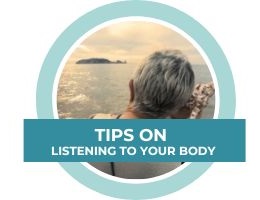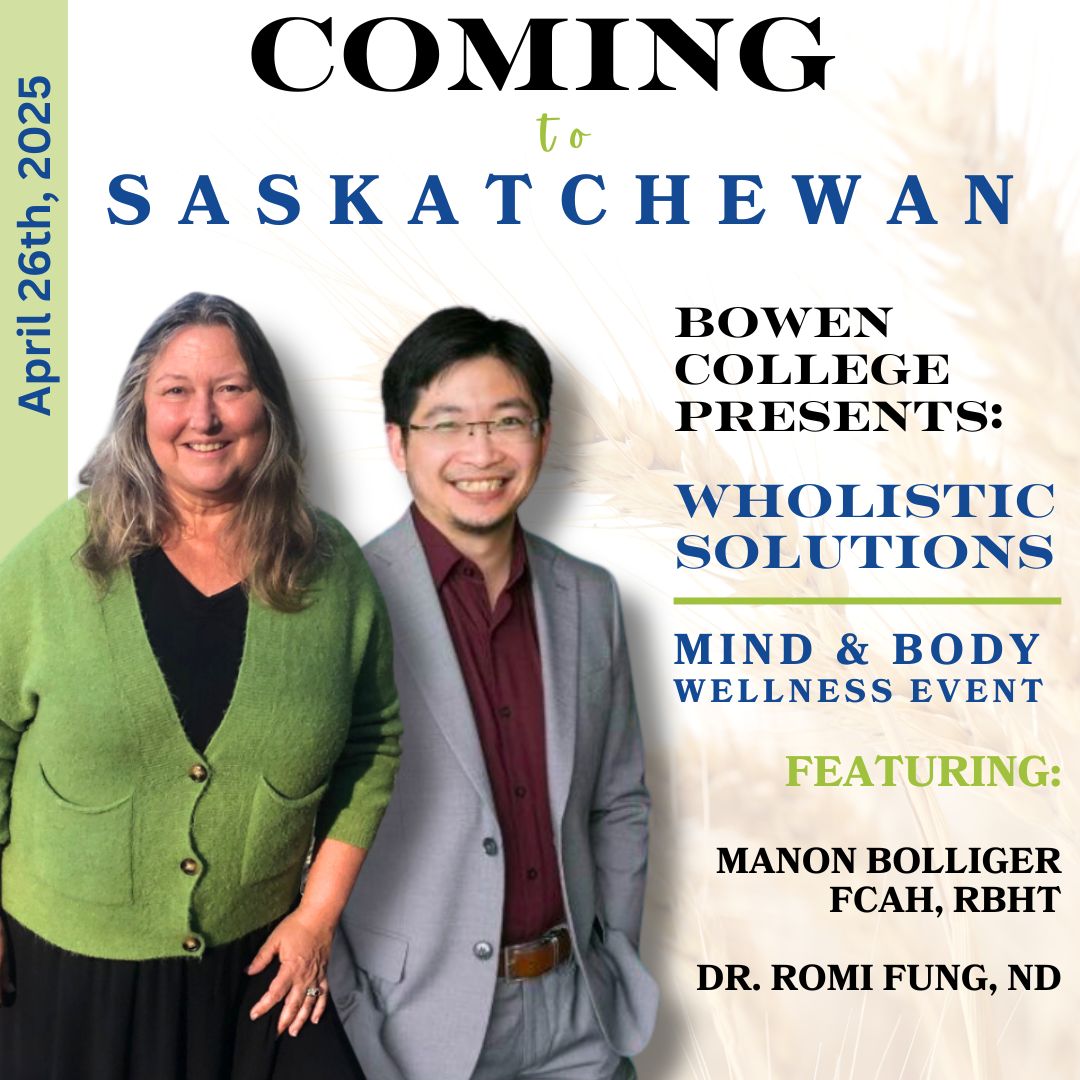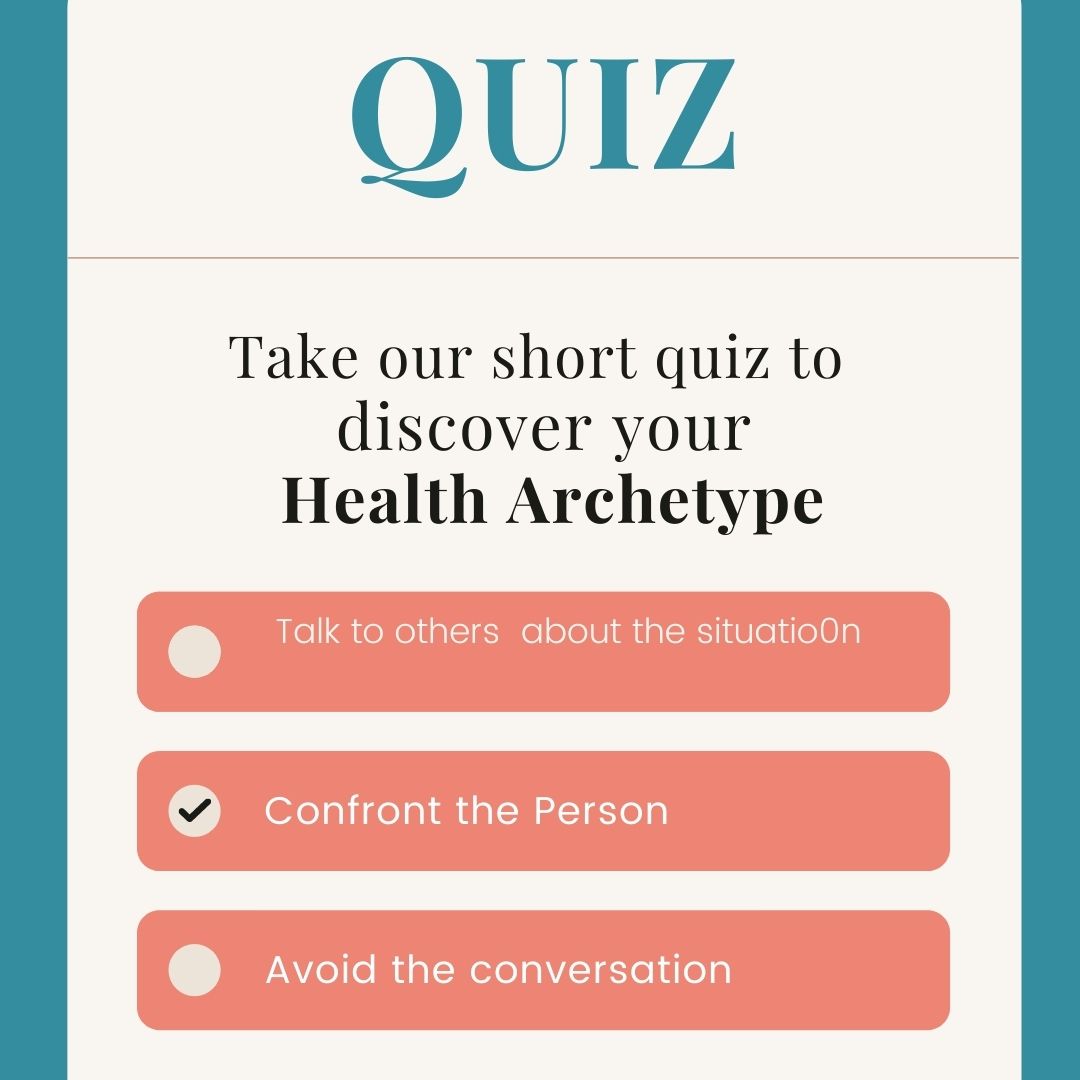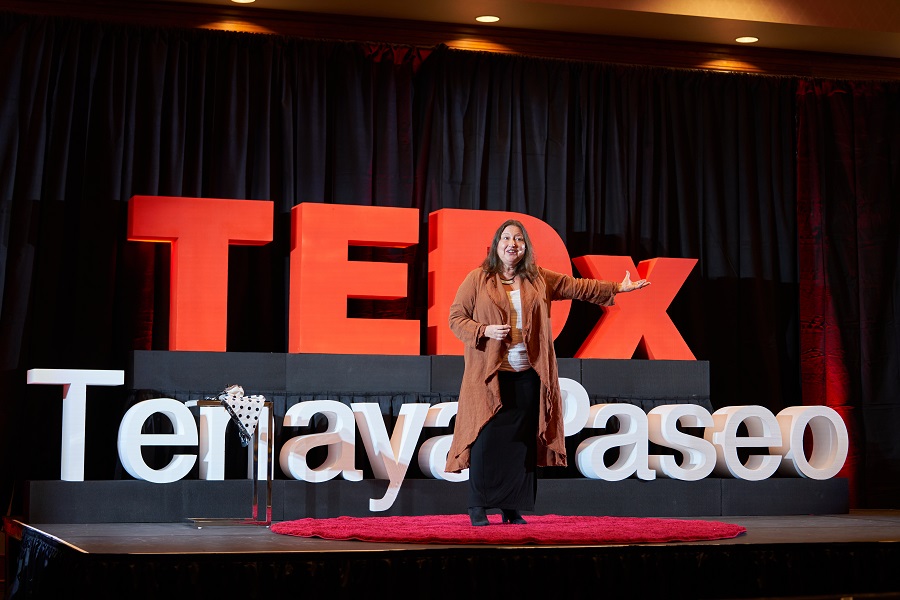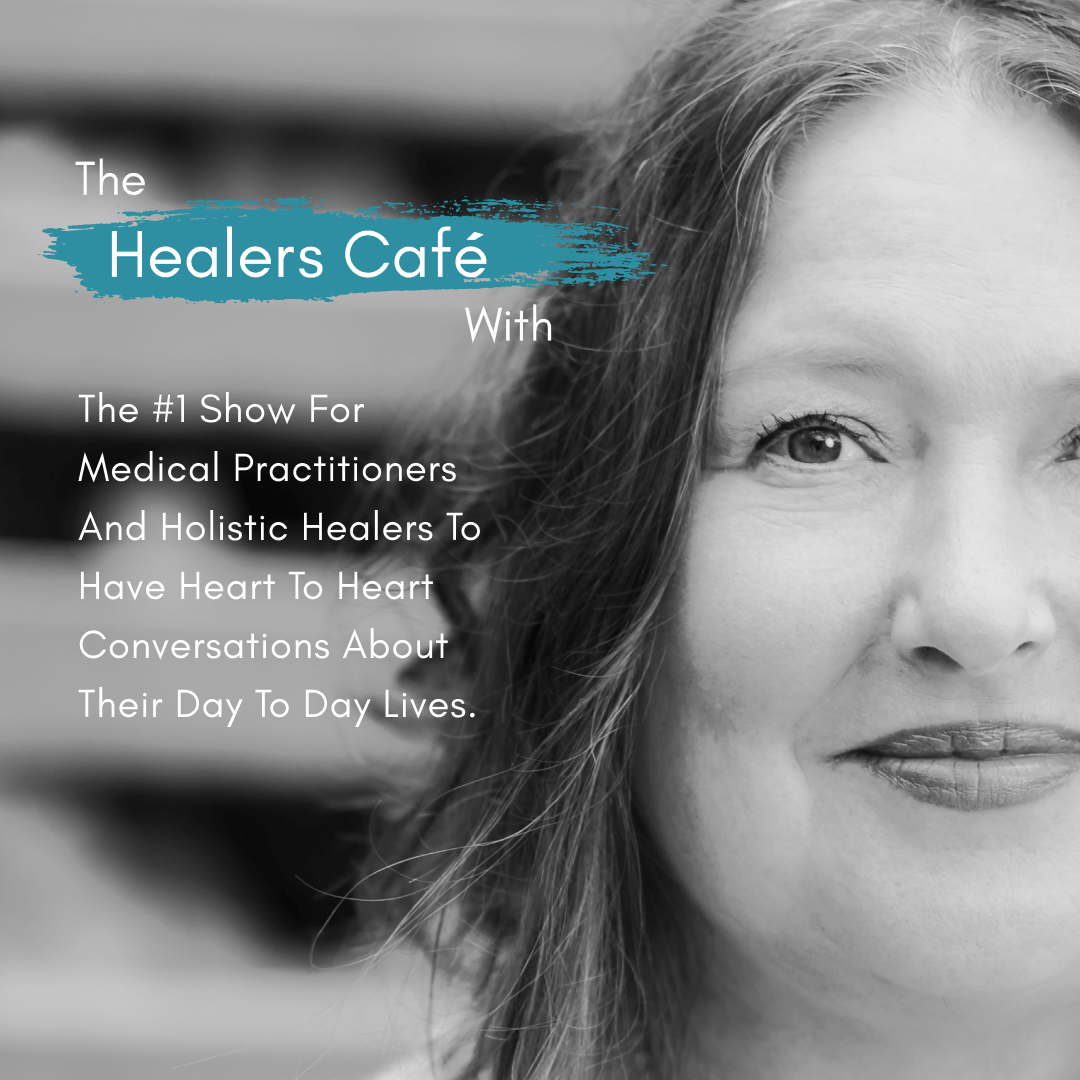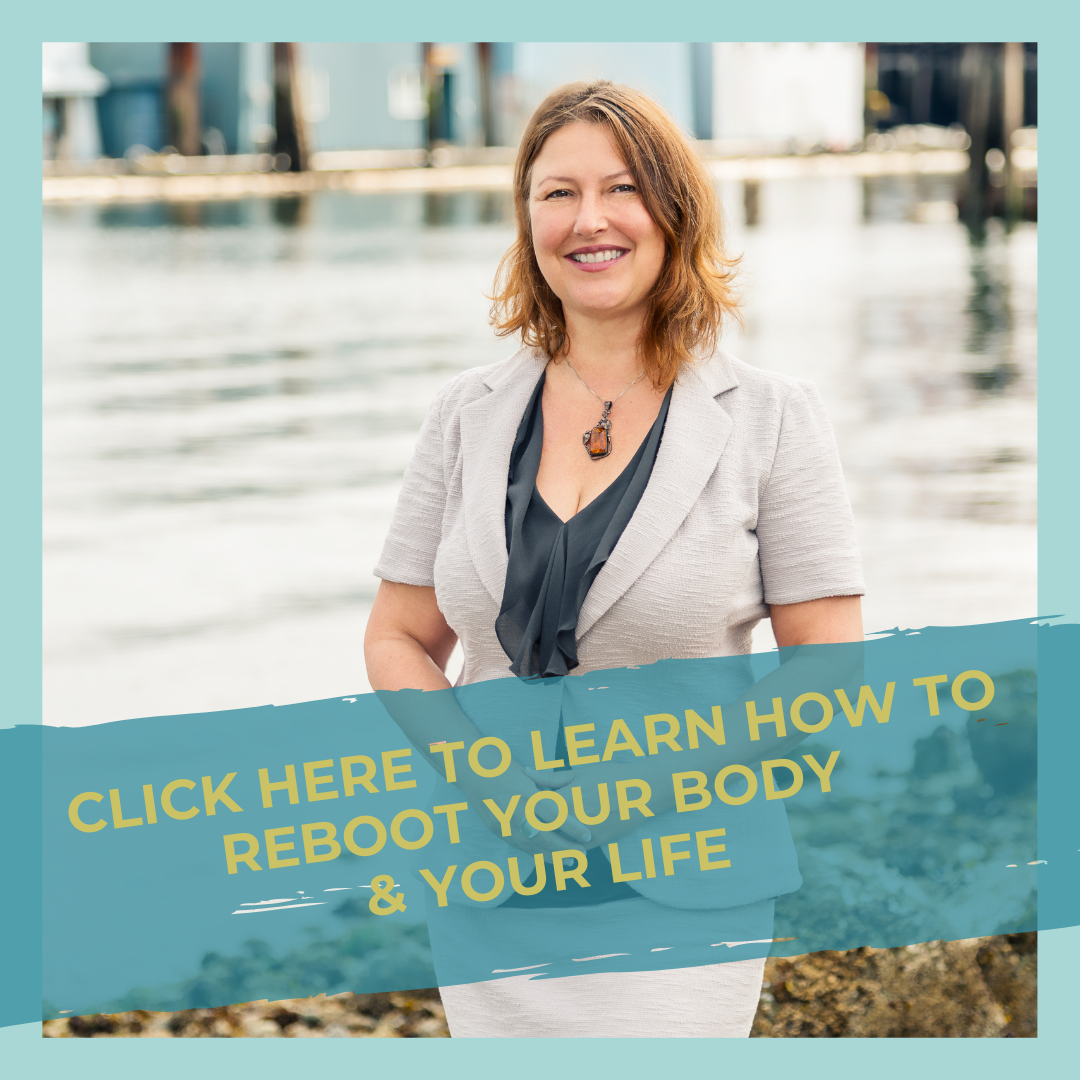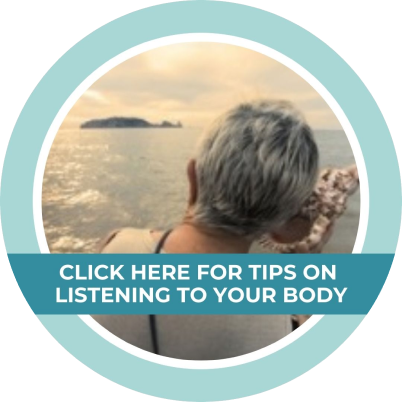
The #1 show for medical practitioners & holistic healers to have heart to heart conversations about their day to day lives.
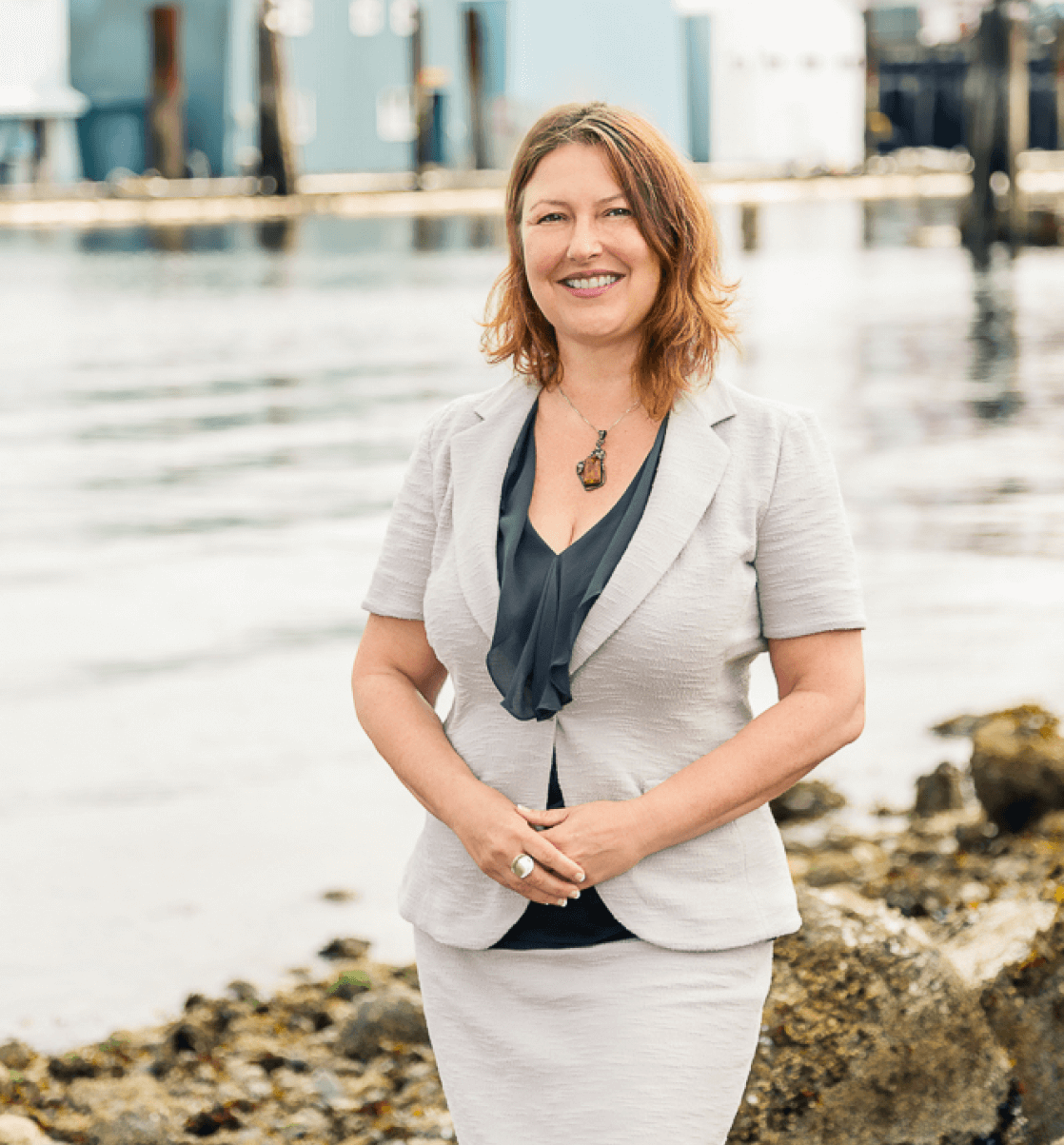
Manon Bolliger (Deregistered with 30 years of experience in health)
iTunes | Google Play | Spotify | Libsyn | iHeartRadio | Gaana | The Healers Cafe | Radio.com | and many more
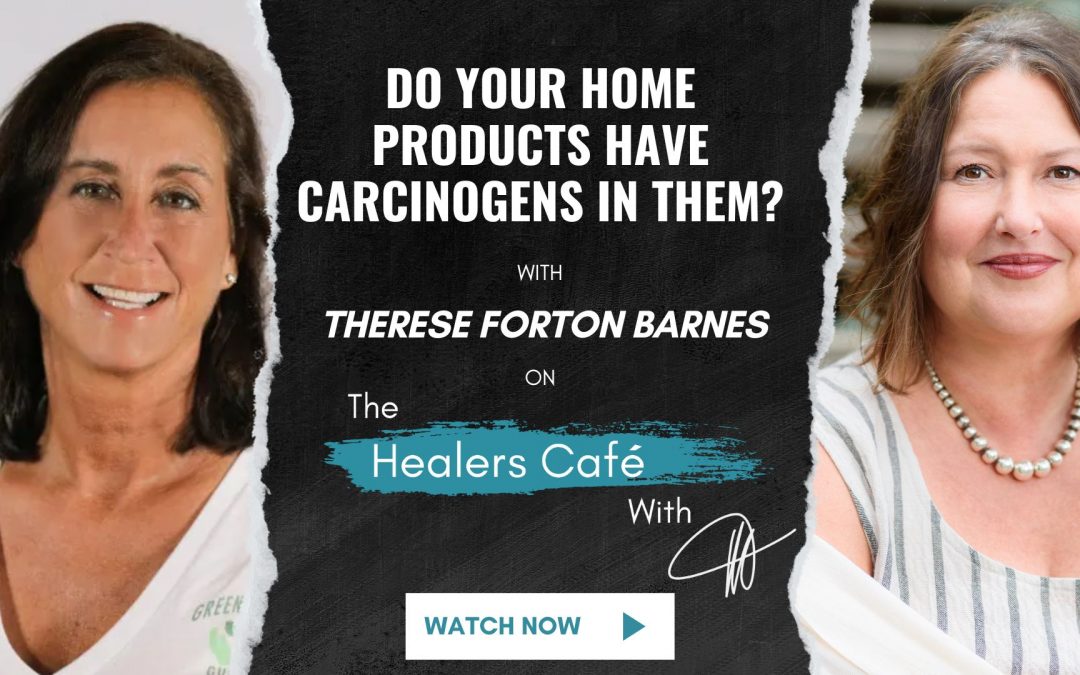
Therese Forton Barnes
Do Your Home Products Have Carcinogens with Therese Forton Barnes on The Healers Café with Manon Bolliger
In this episode of The Healers Café, Manon Bolliger, FCAH, RBHT (facilitator and retired naturopath with 30+ years of practice) speaks with Therese Forton Barnes discussed the importance of avoiding toxins and chemicals in daily life
Highlights from today’s episode include:
Therese Forton Barnes
No perfume will ever tell you what, what ingredients are in their perfume because of this law. But that law, so you can take…you can make a product and you can put fragrance in it. You can put 50 carcinogens in there. And nobody’s going to question you.
Therese Forton Barnes
Same with laundry detergent, exact same thing. What’s in your laundry detergent, you’re sleeping in it. You’re breathing in the fumes that are off gassing from your clothes all day long. Your dryer is heating up all these chemicals.
– – – – –
Therese Forton Barnes 17:52
But try just eliminating what you’re using for a month and see if you’re having ailments. And I’ll tell you 100% of the time that I get people to do this, they realize they’re not waking up with a sore throat, they’re not wheezing in the middle of the night, they’re sleeping better.
ABOUT THERESE FORTON BARNES
Therese Forton-Barnes, is a Household Toxins Health Specialist and Coach and owner of The Green Living Gurus and Tee’s Organics. She will guide you on a road to avoid toxicants and chemicals that could cause cancer and other illnesses and lead you towards living a healthier low-tox life. She will help you navigate through the process of making healthier choices and inform you of alternative products and options that are not harmful to your health and the environment. She will help you decrease your exposure to chemicals and hopefully reduce the risk of illnesses and increase your odds of a long, healthy vital life.
She helps you reduce your exposure to toxicants and ease the overwhelm and nerves of chemical confusion. She guides you in creating a non-toxic home to reduce the risk of illnesses and toxic poisoning and increase the odds of a long, healthy, vital life and a safe environment for you and your family.
She does this through her weekly podcast show, newsletter, blog posts, social media, healthy home coaching and Tee’s Organics, a line of household cleaners and products that are healthy for you and your home.
Therese lives in her beloved hometown of Buffalo, New York with her husband Tom and Australian Labradoodle Murphy. After earning a degree from Ithaca College with a major in Business and a minor in Health Studies, she had a business plan to open a health food store so everyone could have access to healthy eating and living, just like she had growing up. But out of college she ended up on another path and founded Events 2 A Tee, an event planning business that has operated in the WNY area for more than 37 years. But, on the side and for the last three decades, she has helped many people and cancer survivors learn how chemicals can be affecting their health. Her mother taught her everything about living a non-toxic life, but unfortunately, chemicals eventually took her mom’s life after swimming in a chlorinated pool everyday for over 50 years.
In 2020, Therese pivoted to her true passion: healthy, natural, non-toxic living. Therese brings over 40 years of hands-on, real-world experience in living a holistic, non-toxic lifestyle. She is also furthering her education and training all the time.
In 2021 she started a new business called Tee’s Organics. The product line consists of: An all-purpose cleaning spray and three room sprays that are also good for linens, sneakers, hockey/athletic bags, cars, offices, and more. Her slogan is “Healthy for You and Your Home!” More products are in the works. Also, all purchases on her website support 1% for the planet https://www.onepercentfortheplanet.org/
Besides living a healthy life, Therese loves to exercise, sip on organic wine, cook, walk her dog, go to the beach, listen to live music, plan parties, hang with her husband and dog Murphy, attend Buffalo Bills and Sabres games and to cruise in her 1971 Cutlass Supreme convertible.
Website | Facebook | Instagram | LinkedIn | Linktr.ee | X | YouTube |
ABOUT MANON BOLLIGER, FCAH, RBHT
As a recently De-Registered board-certified naturopathic physician & in practice since 1992, I’ve seen an average of 150 patients per week and have helped people ranging from rural farmers in Nova Scotia to stressed out CEOs in Toronto to tri-athletes here in Vancouver.
My resolve to educate, empower and engage people to take charge of their own health is evident in my best-selling books: ‘What Patients Don’t Say if Doctors Don’t Ask: The Mindful Patient-Doctor Relationship’ and ‘A Healer in Every Household: Simple Solutions for Stress’. I also teach BowenFirst™ Therapy through Bowen College and hold transformational workshops to achieve these goals.
So, when I share with you that LISTENING to Your body is a game changer in the healing process, I am speaking from expertise and direct experience”.
Mission: A Healer in Every Household!
For more great information to go to her weekly blog: http://bowencollege.com/blog.
For tips on health & healing go to: https://www.drmanonbolliger.com/tips
SOCIAL MEDIA:
– Linktr.ee | Rumble | Gettr | Facebook | Instagram | LinkedIn | YouTube | Twitter |
About The Healers Café:
Manon’s show is the #1 show for medical practitioners and holistic healers to have heart to heart conversations about their day to day lives.
Subscribe and review on your favourite platform:
iTunes | Google Play | Spotify | Libsyn | iHeartRadio | Gaana | The Healers Cafe | Radio.com | Medioq | Audacy |
Follow The Healers Café on FB: https://www.facebook.com/thehealerscafe
Remember to subscribe if you like our videos. Click the bell if you want to be one of the first people notified of a new release.
* De-Registered, revoked & retired naturopathic physician after 30 years of practice in healthcare. Now resourceful & resolved to share with you all the tools to take care of your health & vitality!
TRANSCRIPT
Introduction 00:00
Welcome to the Healers Café. The number one show for medical practitioners and holistic healers, to have heart to heart conversations about their day to day lives, while sharing their expertise for improving your health and wellness.
Manon Bolliger 00:20
So welcome to the Healers Cafe. And today I have with me Therese Forton Barnes. And she is a household toxin health specialist and coach and the owner of the Green Living Muros and Teas Organics. She will guide you through a road to avoid toxins and chemicals that could cause cancer and other illnesses and lead you towards a healthier living, toxic free lifestyle. So that’s really what we’re going to talk about. And I wanted to start just by the question What led you into this field in this particular field?
Therese Forton Barnes 01:08
Yes, thank you. And thank you for having me. So I grew up and I still live in Buffalo, New York, and my mother in the 60s, I have three older sisters and younger brother, was way ahead of her time. And that’s when Burger King, McDonald’s, and all these other fast foods and chemicals were invading our lives. And she was adamant about us not eating anything processed. But also, we had chores every weekend, and everything was to be cleaned with vinegar and baking soda basically. And I grew up that way. I thought everybody knew that way. I thought that was just the norm until I started getting a little bit older, in my teens, and I figured I was we were the odd ones. And we were being called granola heads. And we were shopping at our little Co Op, which we still shop at this to this day in Buffalo. But I went away to college in the mid 80s. And I decided I wanted to open up a big health food store and show everybody all how to live a healthier life. I was in my late teens thinking this. I mean, I was just devastated by the amount of bad stuff that was out there. So I had a business major, a minor in health, I had a business plan. I’ve been an entrepreneur my whole life. And I came out of college with this business plan that everybody knows is Whole Foods, which is, you know, our supermarket here primarily in the US and Canada. But I came out as a party planner, I was also the one planning every party and I’ve had a party and wedding and event planning industry for 38 years here in Buffalo. But through the course of the past almost four decades, I was the person that everybody came to and said, Can you look at my house? Can you look at my kitchen, I just got diagnosed with cancer, do you have any advice, and I was just doing it on the side for fun, but it was my passion. It’s my true passion. It’s what I love to do. And I love to help people look at their homes and see potentially where some of these toxins are coming from that could be causing so many health issues, whether it’s …
Read more...
food or cleaning supplies, etc. So then fast forward 2020. Actually, prior to the pandemic, I decided after 800 events that I planned, I am in my…now I’m 61. I decided, you know the next part of my life, I really want to set it out to do what I planned on doing my whole life. And that was really helping people create a less toxic home, because we never will have a toxic free home even though I might use that terminology, and decrease the amount of chemicals that we are allowing into our bodies that could potentially be causing cancer and so many other autoimmune illnesses and creating havoc in our house. So that’s where I am.
Manon Bolliger 04:16
Hm. Okay, well that’s an interesting transition, let’s say a lot of well, I mean, a lot of work and fun also doing hosting all these events. But um, yeah, I mean, I’m quite interested in the subject matter myself, because I don’t think we discuss it sufficiently. And I think there’s, you know, basic things that people take for granted. You know, you pick any shampoo, you know, you don’t think about the skin as your main organ, right?
Therese Forton Barnes 04:54
Right.
Manon Bolliger 04:55
Right. And you know, we lather on stuff that doesn’t have any, you know, known ingredients is because apparently they don’t test it like foods, though, I’m not sure whether they even test foods, but that’s another story.
Therese Forton Barnes 05:12
True.
Manon Bolliger 05:14
So, what can you like? Maybe the top 5 or 10? Whatever you feel like that…like a checklist, what should we look at, that you have found really impacts people’s health?
Therese Forton Barnes 05:30
Well, before I go there, I want to go somewhere first, because history is important for people to understand because a lot of people asked me so why is fragrance allowed in all of these products when it’s potentially a carcinogen potentially harming all of our health, potentially causing autoimmune illnesses, potentially causing allergies? Well, I like people to understand the word fragrance first, because fragrance in the United States, I don’t know what the law is in other countries. But at least in the United States, where a lot of the products come from, fragrance is a word that’s on so many products, hair products, lotion, deodorants, shampoos, cleaning supplies, and the list goes on and on. So when you see the word fragrance on a product, and on the front, it says lavender scented or ocean breeze, you really want to question that especially, you want to turn the label around all the time and look at the word fragrance. But the history here, everybody needs to understand this. This is a law from the 1940s in the United States that was created for Chanel number five, that went to our government and said, We do not want to disclose what’s in our products. So they never had to and they still don’t. No perfume will ever tell you what, what ingredients are in their perfume because of this law. But that law, so you can take…you can make a product and you can put fragrance in it. You can put 50 carcinogens in there. And nobody’s going to question you. It’s all on that company to do the testing. And we know where that really resides. Yeah, exactly. It’s all about the money and you know, the money they’re making. So the word fragrance, perfume, parfume, those are three key words that you always want to avoid. It’s the first thing that I do with everybody I talk to. Because you avoid that word fragrance, which is probably one of the hardest words to avoid because most people want that smell of lemon or lime or lavender, whatever in their products and they think it’s okay. It’s not okay. And the myriad of chemicals that make up those fragrance perfumes and all these products, and you think your hair smells beautiful, or your lotions lovely, or your cleaning supplies smell like lemon fresh, it’s not. It’s chemicals that you’re spraying consistently in your home, to clean your dishes, to clean your home, to clean your body to lather and lotion, our largest organ. And it that’s what I try to get everybody to first look at. Because once you understand that, and you understand that fragrance is the other F word as I like to call it in our industry. That is the biggest eye opener to everything you touch in your entire life. It’s hard. Laundry detergent, also, dryer sheets also. And fabric softeners I mean all of those and we’re all attached to a scent, probably from what we when we grew up and we thought these were our clothes were clean because of this fragrance. Unfortunately, our clothes are dirty because of fragrance. So that is the number one thing that I would that I always bring up in all my sessions.
Manon Bolliger 09:31
And I was going to say it’s not obvious that fragrance means an artificially made fragrance. Right? Because you have like bushes of lavender and you know you think about the village in the south of France and pizza outside in the wind with lavender. But I was gonna share this with food, and I know that’s not our subject exactly. But that’s where I opened my eyes is in Europe, if you have the food coloring, and they tell you which color, but they also have to tell you which cancer is associated to the color. So you know that yellow is more likely to give you…I’m not remembering them all because I don’t buy anything that has coloring, I just, you know, I’m very strict with that. I think it’s kidney. And, you know, green is this, um, you know, all of them have a different thing. So I haven’t seen it for fragrances, which is interesting. And that wouldn’t have automatically come to mind that of course they’re synthetic. They’re man made, right.
Therese Forton Barnes 10:50
Manmade. And the other thing to remember there if you because my friends will give me gifts once in a while, and I’d be like, they’re all scared to give me anything product because I’m like, they know I’m gonna turn it around. Naturally scented, anything with the word natural, be careful, but naturally scented with essential oils, you’ll see that a lot. That’s a huge problem, Love essential oils. The problem is that they are being used to make the consumer think that these products are made with essential oils. So they’ll say made with essential oils. And in the United States, it only has to have 2% essential oils in it, to let them put that on the front label. So made with essential oils with lavender, and Jasmine or rose or whatever. And then you go through the ingredients and you see fragrance and it’s just, it’s a farce and it’s greenwashing and they…we as consumers need to pay attention to our labels and every ingredient in them. So we know what we are using in our homes using on our bodies, because we need our homes to be as least toxic as possible, considering that’s where we spend most of our time.
Manon Bolliger 11:13
Okay, and that was the first one fragrance.
Therese Forton Barnes 12:20
Yeah okay. We didn’t even get further than fragrance did we.
Manon Bolliger 12:27
So what would you say next that people look at.
Therese Forton Barnes 12:31
So, I want to take up products, because where people can make the most impact and making their homes healthier. Our homes are considered between 2 and 100 times more toxic than the outdoor air. Because of products that we are using in our homes. Not even in our bodies. We’re not even going to talk about that right now. But the air we’re breathing, what you’re cleaning with in your home is so important, because cleaning supplies another one. And I keep referring back to US laws, because that’s what I’m most familiar with. I know European Union is much more strict, but the cleaning supplies that are out there are loaded with chemicals. And those chemicals that you’re using are in the air in your home, they’re on the counter in your home, you are constantly using them, then you’re breathing them in one way or another. Dish soap you’re standing over…your hand, washing your dishes, you’re standing over your sink with hot water with some green or blue that they want you to think is good cleaning soap, you’re breathing in these chemicals, constantly. Whether or not you like it, but those are fumes that are and especially with hot water are coming into your body, your lungs, etc. So these are things that can affect your health. And the more our body has to work on getting these chemicals out of our body somehow one way or another, our organs are over being overworked. So you want to avoid those as much as possible. And what do we do? What do we clean with? Well, as I mentioned, go back to the basics if you want to, or there are some healthier options out there all over the world there are not just in the United States. I mean, I do have a product line that I make here, or we make here in Buffalo, but there are so many good options out there right now. 10 years ago there wasn’t and just I always try to get people to research it. Same with laundry detergent, exact same thing. What’s in your laundry detergent, you’re sleeping in it. You’re breathing in the fumes that are off gassing from your clothes all day long. Your dryer is heating up all these chemicals. So you just want to pay attention. Those are two of the biggest areas that I always get people to try to pay attention to. And what I try to tell people to do is take your laundry detergent, take your dish soap, take all your cleaning supplies, put them in a box, do not throw them away. Put them in a box. Put them aside for a month. Go get all the non toxic ones. Seventh Generation is a very good option. Maybe try cleaning just with vinegar and water and fresh or soap. Dr. Bronner’s is world renowned. Dr. Bronner’s is soap that that’s all I will clean with if I need some soap for our toilet or whatnot. Use Dr. Bronner’s in your kitchen sink for your dishes.
Manon Bolliger 16:10
What is the ingredient that I’m not familiar with that?
Therese Forton Barnes 16:13
Dr. Bronner’s is a world renowned. They’ve been around since the 1970s. One of the original they have it’s pure castile soap.
Manon Bolliger 16:22
Castile soap. Okay.
Therese Forton Barnes 16:24
Yeah. And they have different. They have a spearmint one. They have one that’s made for babies. It’s very…I love their whole line. Dr. Bronner’s, it’s called.
Commercial Break 16:41
What would your life be like if you were pain free. If you were one of the millions who suffer from chronic pain, the thought of just one day without it may seem impossible. This is often because conventional medicine tends to fall short in the treatment of pay, opting to prescribe pills or recommend surgery rather than getting to the root cause of the problem. But if you are suffering with emotional or physical pain, there is hope. Join the founder and CEO of Bowen College, Manon, Bolliger, live online for Your Body Mind Reboot. Learn how to listen to your symptoms and get to the root cause of your pain. Plus, be trained in basic Bowen therapy moves, so that you can reboot your body for optimal health. You don’t have to live in pain, you can heal, stop the pain pill cycle by visiting www.yourbodymindreboot.com To learn more, and to register.
Therese Forton Barnes 17:52
But try just eliminating what you’re using for a month and see if you’re having ailments. And I’ll tell you 100% of the time that I get people to do this, they realize they’re not waking up with a sore throat, they’re not wheezing in the middle of the night, they’re sleeping better. They’re breathing better, they feel better, their air is cleaner. You don’t need 14 different products to clean your home that these manufacturers are trying to convince you that you need to clean in your home and it’s not clean. You’re poisoning your home in my personal opinion with toxic chemicals every single day. So that’s just a little task that I tell people try to do. Try to do if you can’t live without that scent that smell. You know, I can’t help with that. But essential oils, you know, if you really want something for your clothes to smell like something, try using essential oils. I like my clothes, not to smell like something. We like our clothes to smell like our clothes. We like our clothes to smell like you know what we’re wearing and not what is poised could be poisonous and toxic chemicals.
Manon Bolliger 19:10
Makes sense to me. But, you know, there’s been so much I guess, advertising, you know, to make people feel like that’s what they need. And that’s, you know, they feel clean and fresh. Just because they’re, you know, they smell like a plant or…
Therese Forton Barnes 19:32
Right, of course, the ocean. Yeah, like the ocean breeze. I’m like the ocean breeze. And you know how many chemicals are being put in there to make it? You think that it’s the ocean breeze, and then they have to put all these other chemicals in them to mask the chemicals that they’re using to make it smell like ocean breeze. So they’re pouring all these. I’ve spoken to scientists before that worked in labs and they’re like you wouldn’t have, you wouldn’t be amazed at what goes into these fragrance vats that have to be made up to make it smell like ocean breeze. It is unbelievable.
Manon Bolliger 20:16
I can’t. This is one of our small disagreements with my offsprings and it’s interesting, it’s hard, and she likes to put it in the car. I can’t get in the car without coughing and choking.
Therese Forton Barnes 20:34
Exactly.
Manon Bolliger 20:35
And once you you’re cleaner. It’s almost as if your body really can’t. It knows right away, whoa, this isn’t good for me and it just wants out, you know. But yeah, is you know, it’s the same with foods you can eat lots of toxic food, the more you eat a bit, the less your body really gives you the signals that you can read, you know, and it’s the same with if your environment is clean, then you actually are, you’re more alert to what changes in it and what doesn’t fit.
Therese Forton Barnes 21:12
Exactly. I talk to a lot of people that have sleeping problems. And I try to get them to do this whole session where they clean their bedrooms. Our bedrooms are so polluted. I love for people to have an air purifier that also helps with your air and the dust and everything. But try washing your sheets in nothing but non toxic laundry detergent and read it all. I mean, people I didn’t wake up with a headache. I don’t have a sore throat. I didn’t wake up sneezing. I mean, these are just some things that people anybody can try on their own and see how it works.
Manon Bolliger 21:58
It makes sense. Yeah. Now. So we talked about fragrances, we talked about just using very simple products to clean the house. And you you mentioned a few brands. Let’s go for this one because this is one that I’ve had people say to me. Well, you can’t beat Windex. So do you have an idea of what to you know people like their clean windows, and there’s these cloths you know, that you can buy? I forget what they’re called, which do a fairly good job. But this is not where you’d use vinegar or other things. Have you come across a magical Windex replacement?
Therese Forton Barnes 22:52
Well, I you know, for people that want that sparkly, clean window that they advertised to right, You know growing up, we washed our windows with vinegar and newspapers.
Manon Bolliger 23:11
Right.
Therese Forton Barnes 23:13
That is how we cleaned our windows. I cleaned my…well I clean my windows with my all purpose cleaner. But I…Windex is if you look, that’s the thing you need to do. What would you prefer clean windows or potentially harming your health? Look at what’s in Windex. Look at what those…I think ammonia is in Windex, if I remember correctly. Yeah, I think so. Look at what’s in your product. I mean, that’s if you want that product in your home, it’s going in your body one way or another you’re breathing it in potentially touching it going into your skin. Who knows, you know, Windex scares me because it’s airborne. And it’s adding to the polluted indoor air that you potentially are breathing in. So yeah, I grew up again using vinegar. So some people will not use that. My air and I’m not trying to promote my all purpose cleaner, but you can make your own. And you can, you know, I put essential oils in with the vinegar and water. So that is that 409 All those products are just, you know, just potentially harming your health. That’s the bottom line that you have to really consider. What’s more important clean windows or your health?
Manon Bolliger 24:54
Yeah, and what are the common signs I mean, you mentioned people having headaches, cough, sneezing, that type of thing. What else have you noticed? Like a person may be going, Oh, this could be my environment and then they could test you know that one month, get rid of all of those things and see if there’s a different so what would you…is there anything else to that list that you’ve noticed?
Therese Forton Barnes 25:22
Allergies. People think it’s allergies. They think they’ve sinus issues. All the time. Allergies, oh, my the pollen. I had a girlfriend call me the other day. She said, Oh my god, I slept at my girlfriend’s house. I woke up with the biggest headache. She complains that she has bad allergies. She can’t breathe, I can’t sleep at night. She’s got this. She thinks it’s the air. It’s in Florida too. And she said I need you to talk to her. I walked out of there at four in the morning, I couldn’t sleep in her bedding anymore because it was given me a headache. And I had a sore throat when I woke up in the morning. So you know certain people and she was one that I had to took me awhile to get her off dryer sheets and fragrance laundry soap. You don’t…you don’t know…you do not know you feel bad until you feel better. And that’s why I try to get people to slowly make make those changes. And then all of a sudden, you’ll see. Hopefully, you’ll see that you Wow, I feel better. I feel better when I wake up in the morning without these chemicals and my pillows and my sheets and breathing them in every day. I feel better that I’m not breathing in all those chemicals and people just start realizing like, wow, this is really incredible. What a change that it can make in your life.
Manon Bolliger 26:56
Yeah. And I was thinking to one of the, I mean, I’ve seen from experience here, toxins that are, you know, the off gassing of new materials, you know, a lot of our it’s not wood anymore. It’s you know, particle board, the floors, all the glues, like, you know, where we’re constantly you know, and these fire retardant couches at some places you won’t get insurance unless you get them you know, which is it’s crazy.
Therese Forton Barnes 27:33
Yeah. The flame, the flame retardants, okay, you know, I love history. The flame retardants is a crazy story. Why furniture is sprayed with flame retardants, even children’s sleepwear are sprayed with flame retardants. In, I think was the 60s, I can’t remember the year but the cigarette company companies, the government went to the cigarette companies and said people are falling asleep in bed with cigarettes in their hands. You’ve got to do something to your cigarettes to make sure those cigarettes burn out before they set the bed on fire. And they came back to the government of course and said well wait, we have a better idea. Why don’t we just spray everything with flame retardants and then nothing will light up with fire including children’s sleepwear. Yeah.
Manon Bolliger 28:36
3M. Right. Wasn’t that the big company that was…
Therese Forton Barnes 28:41
3M? Yeah, yeah. One of them one of them. Yeah. And it’s it’s it’s things are turning now especially with California and their proposition 65. The law where you have to disclose or they will not sell the products if it has any of those chemicals in it. But things are changing Canada on the other hand, did not if I remember correctly, abide by those laws. My sister used to go over to Canada to buy their kids sleep where because we live in Buffalo right on the border. But those things are starting to change. Now they’re starting to see how toxic flame retardants can be. That is is in so many different furnishings and rugs and being sprayed on so many different products that we are bringing in our homes. So that’s another thing. I’m glad you brought it up to consider. And they are many of them are known carcinogens and there’s been laws that have just been passed regarding firemen who have to fight these battles and houses and their cancer rates are so high because of these flame retardants.
Manon Bolliger 28:42
Yeah. So our time is almost up, but I wanted people to know that you do have a podcast. And can you tell us a little bit in, you know, a few more minutes, either anything else that we really need to know about this, and then how people can get in touch with you or?
Therese Forton Barnes 30:16
Yeah, so my, it’s, if you take your time, do not try to go through your house and throw everything away, unless you really want to then call me and I have so much fun with that with you. But the take your time, don’t throw anything away, put it in a box, start looking at labels, reading those ingredients, start understanding some of these ingredients that you always want to avoid, as I mentioned, fragrance, the number one ingredients you always want to avoid. So reading, turn that label around, don’t look at the front of the bottle, don’t listen to what they’re trying to tell you that’s healthy or natural, or aloe in it, or lavender is in it, they’re trying to get you to think that it’s a healthy ingredient, or a healthy product, turn the label around. Always read the label and start start Googling some of these ingredients. And, you know, if you’re, if you’re putting it on your body, it’s going into your body, our organs, our skin is our number one organ. So that or read what you’re cleaning with your breathing those those ingredients and start learning how to protect your home and making it a healthier environment for you and your family. So that’s what I would say and you can always shoot me questions. I’m very accessible. The Green Living Gurus on my website that’s a podcast is on there to my podcast is Green Living with Tee, which is my nickname, Tee not Tea. And my social media is all over on all over the website as well.
Manon Bolliger 32:03
Well, I do think more people are definitely going to wake up to this, you know, and stop trusting, you know, all the propaganda. All the, you know, the companies that I mean profit is their number one objective, and then these relationships with our governments that go in the same direction. So it’s not, it’s not health first. And that’s really our job and we need to do our homework, I think very well said.
Therese Forton Barnes 32:36
Exactly.
Manon Bolliger 32:38
Yeah. So thank you for sharing your knowledge and your passions.
Therese Forton Barnes 32:43
You are welcome. And thank you for having me on. And thank you for everything you are doing as well.
Ending
Thank you for joining us at the Healers Cafe. If you haven’t already done so, please like, comment and subscribe with notifications on as I post a new podcast every Wednesday with tons of useful information and tips for natural healing that you won’t want to miss, go to DrManonBolliger.com/tips for more tips
* De-Registered, revoked & retired naturopathic physician, after 30 years of practice in healthcare. Now resourceful & resolved to share with you all the tools to take care of your health & vitality!
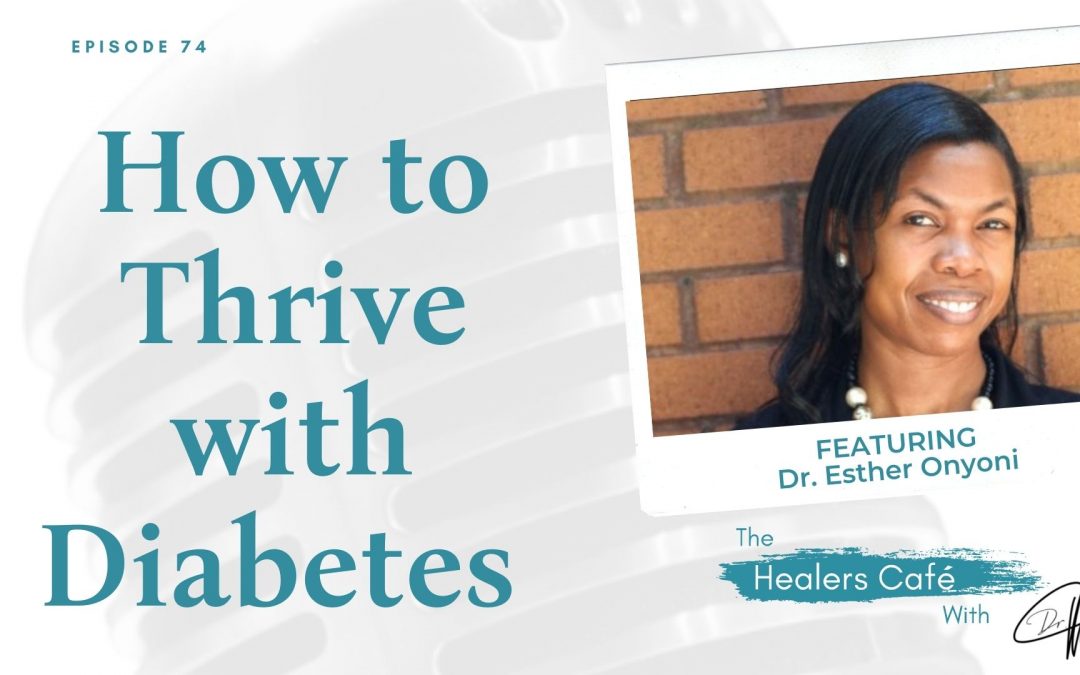
Dr Esther Onyoni
How to Thrive with Diabetes with Dr Esther Onyoni, on The Healers Café with Dr M (Manon Bolliger), NDIn this episode of The Healers Café, Dr. Manon Bolliger ND, talks to Dr Esther Onyoni who is a Pharmacist, Functional Medicine Practitioner and a Certified Health...
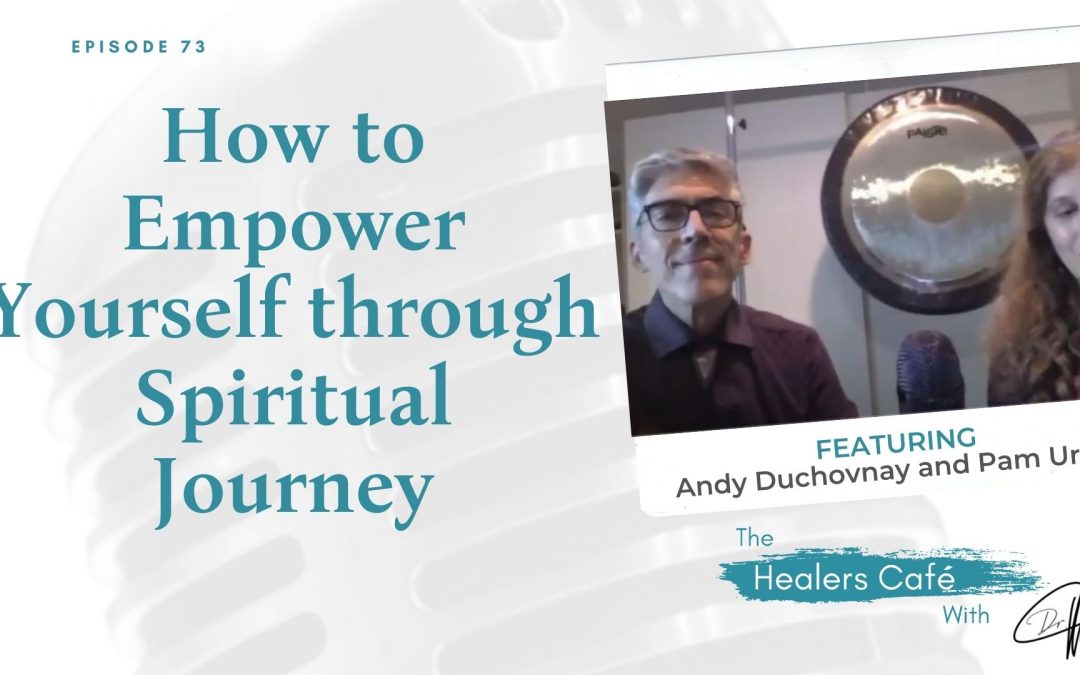
Andy Duchovnay and Pam Urbas
How to Empower Yourself through Spiritual Journey with Andy Duchovnay and Pam Urbas, on The Healers Café with Dr Manon Bolliger NDIn this episode of The Healers Café, Dr. Manon Bolliger ND, talks to Andy Duchovnay and Pam Urbas from The Indigo Sanctuary. We are sound...
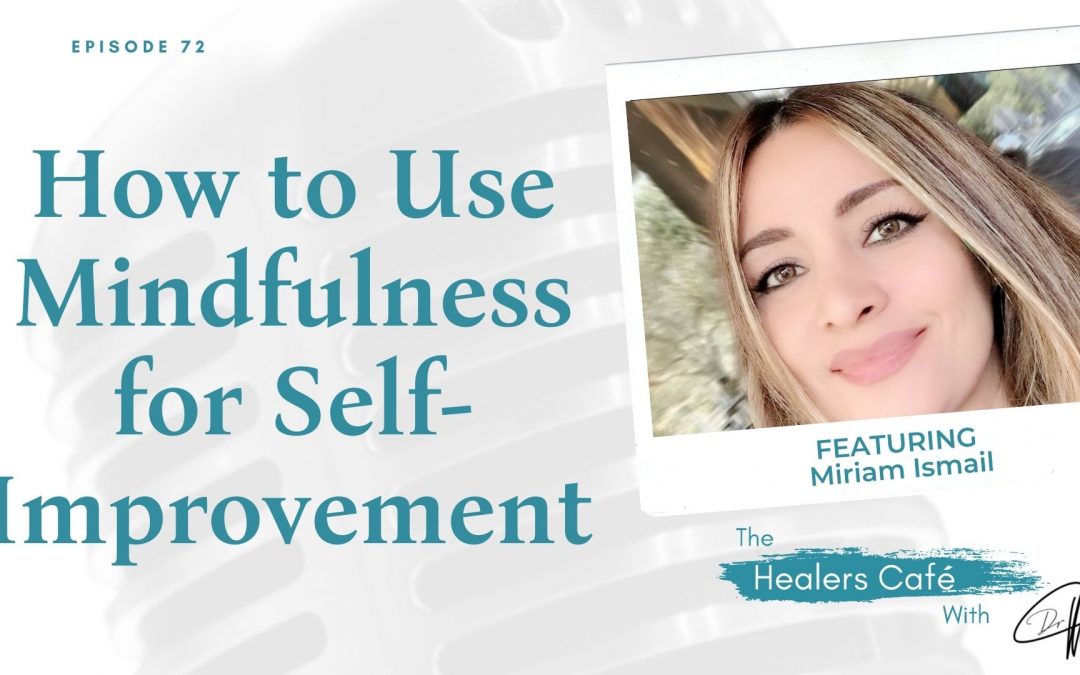
Miriam Ismail
How to Use Mindfulness for Self-Improvement with Miriam Ismail, on The Healers Café with Dr Manon Bolliger NDIn this episode of The Healers Café, Dr. Manon Bolliger ND, talks to Miriam Ismail, is a Professional Development & Self Growth Coach whose mission is to...
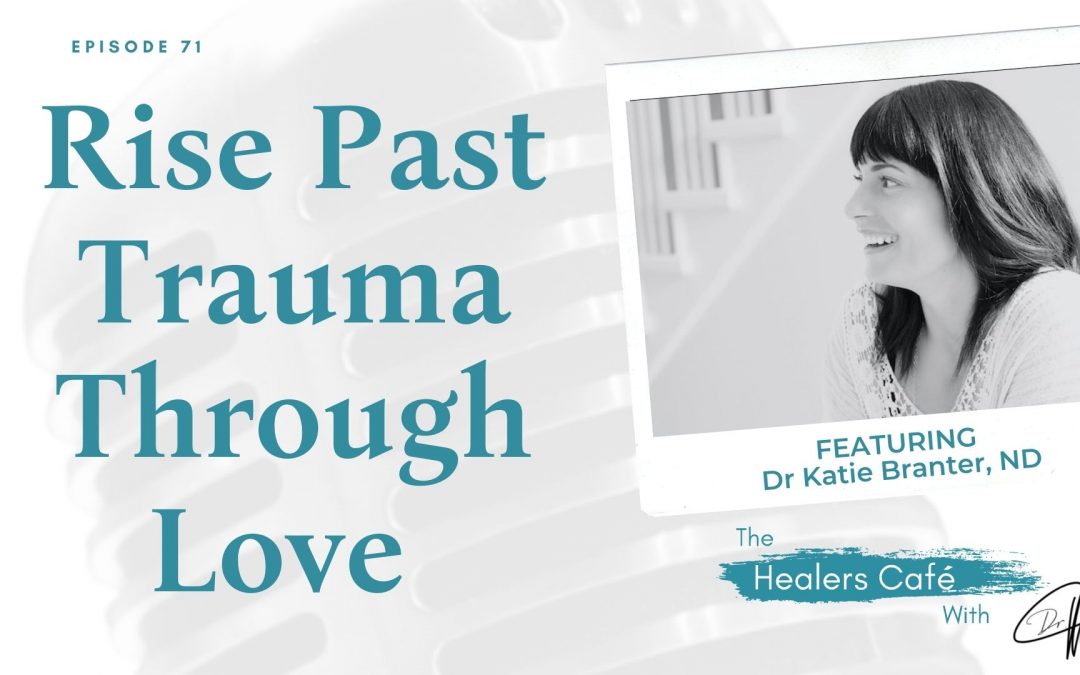
Dr Katie Branter, ND
Rise Past Trauma Through Love with Dr Katie Branter, ND on The Healers Café with Dr Manon Bolliger NDIn this episode of The Healers Café, Dr. Manon Bolliger ND, talks to Dr Katie Branter, ND, on How Parents and Teens Can Rise Through Love back to health &...
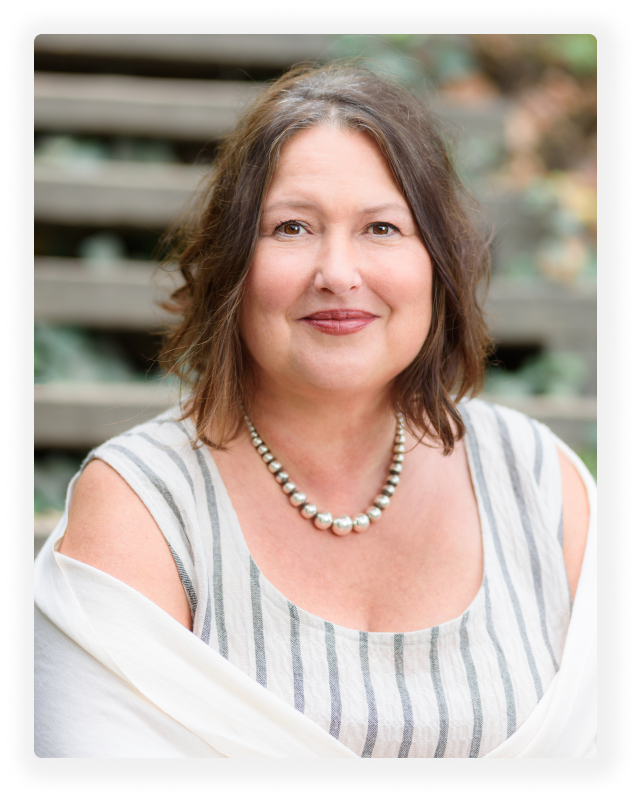
A Better Way To Connect With People
Manon is a newly retired Naturopathic Doctor, the Founder of Bowen College, an International Speaker, she did a TEDxTenayaPaseo (2021) talk “Your Body is Smarter Than You Think. Why Aren’t You Listening?” in Jan 2021, and is the author of 2 Amazon best-selling books “What Patient’s Don’t Say if Doctors Don’t Ask” & “A Healer in Every Household”.
FollOW MANON ON SOCIAL MEDIA
Manon Bolliger, FCAH, RBHT
Facilitator, Retired naturopath with 30+ years of practice, Business & Life Coach, International & TEDxTenayaPaseo (2021) Speaker, Educator, 2x Best Selling Author, Podcaster, Law Graduate and the CEO & Founder of The Bowen College Inc.
* Deregistered, revoked & retired naturopathic physician after 30 years of practice. Now resourceful & resolved to share with you all the tools to take care of your health & vitality!
![]()
